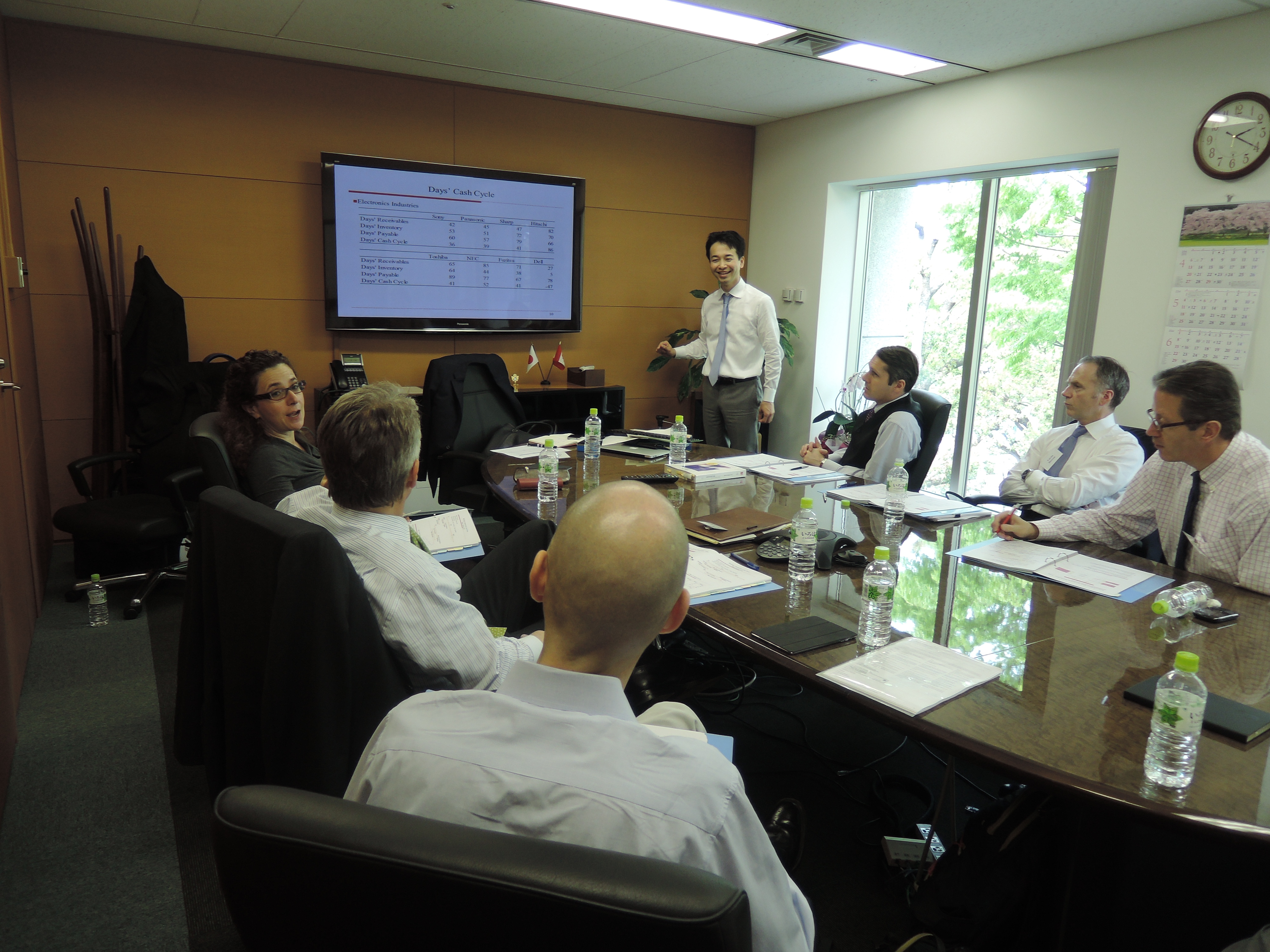

The above photos are from BDTI's successful program held yesterday, Reading Japanese Financial Statements as a Board Member, taught by Professor Mikiharu Noma of Hitotsubashi ICS (with Nicholas Benes chirping in from time to time). The idea for the course originally came from experienced board director Christina Ahmadjian, who can be seen delivering an insightful comment in the photo at the top. We are always impressed how good Professor Noma is at making these topics comprehensible, and how necessary instruction like this is for most board members. One really cannot get enough of it, since most of us are not CPAs but need to be knowledgeable and confident enough to ask the sometimes embarrassing questions that enable us to get behind the numbers. If you are interested in the next offering of this course, please let us know by emailing us at info@bdti.or.jp .
Here is a summary of the course:
Course Description: This is an intensive full-afternoon session intended tobrush-up (or as they say in Japanese, level-up) participants' familiarity with: a) someof the more complex but important topics that arisein interpreting financial statementsin Japan;b) key emerging issues such as IFRS; and c) how strategy and cash flows are reflected in financial statements.
Approach: The focus of the course will be on examiningactual examples to understand each topic, in order to supplement explanations. Pre-reading will assigned, includingthe actual financial statements of Japanese companies that will beused in the course, and to the extent feasible,articles on specific subjects. Also, we cansuggest textbooks for prior or post-course reading depending on the level of accounting knowledge of each participant, in order to firm up understanding of “the basics”.
Course Syllabus:
1. Overview about reading and interpreting financial statements
2. Accounting Fraud – one case study; andaset of actual financials
3. The Percentage of Completion Method – one company in legal trouble
4. Differences between IFRS and Japanese GAAP – revenue recognition
5. Business Combinations -two examples ofmajorcompanies' financials
6. Accounting for Income Tax -financials of amajor electronics firm
